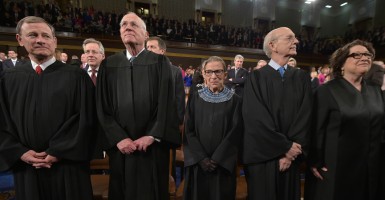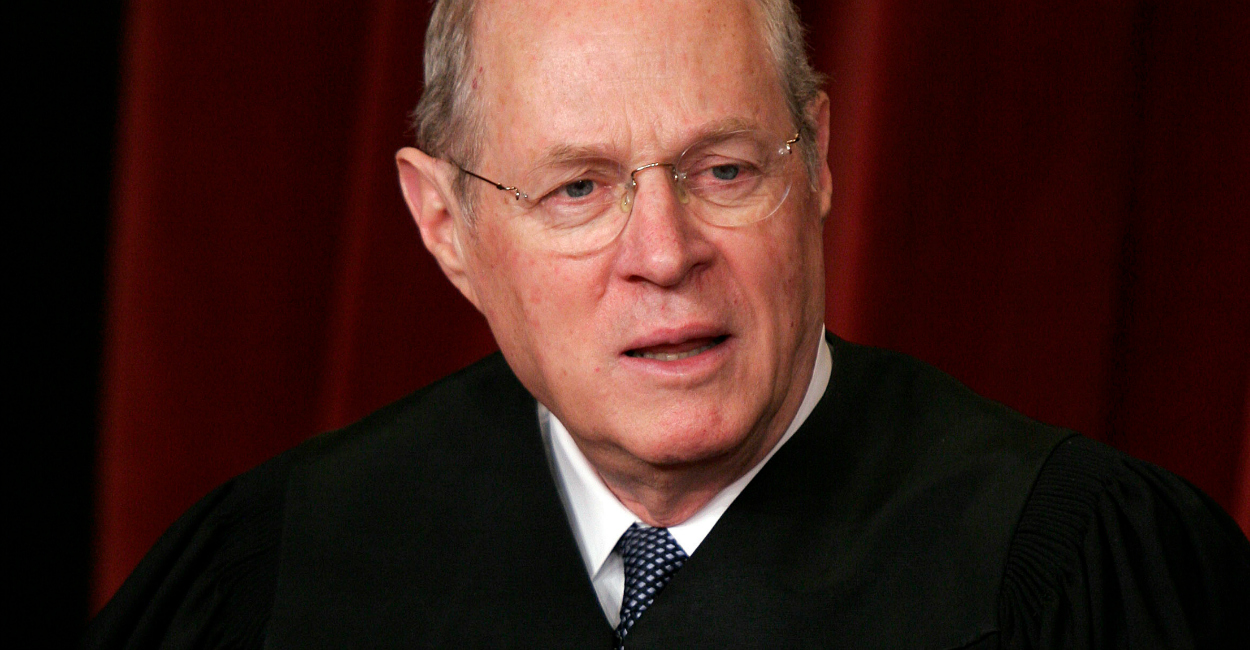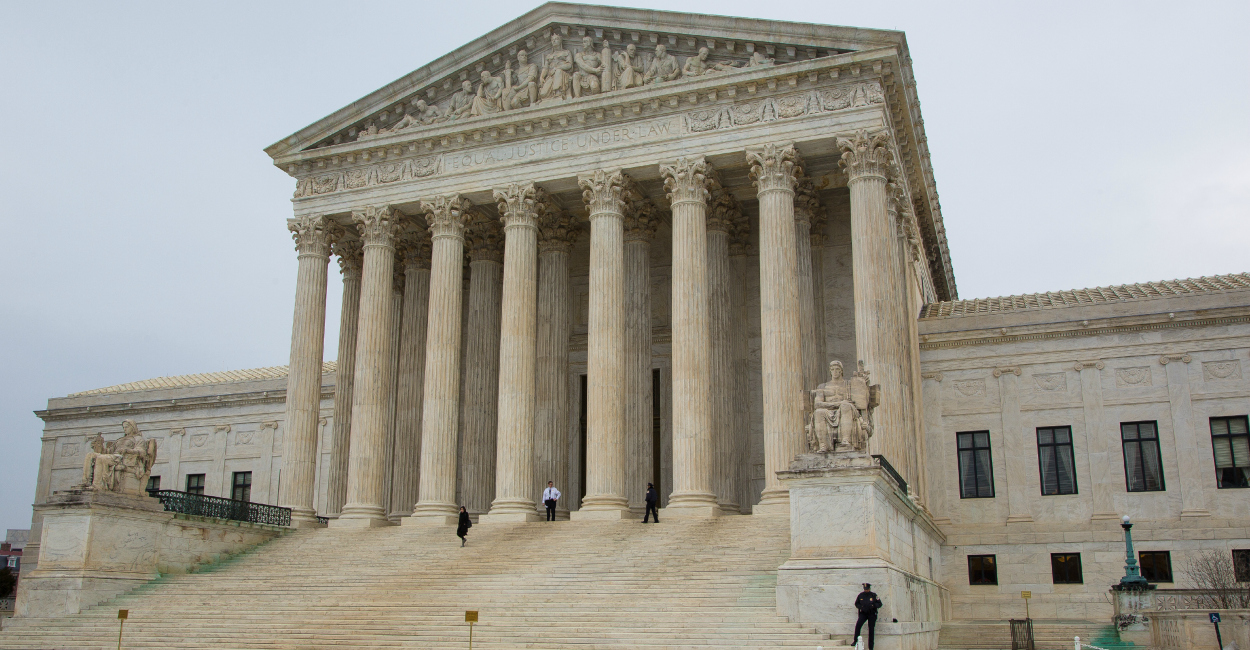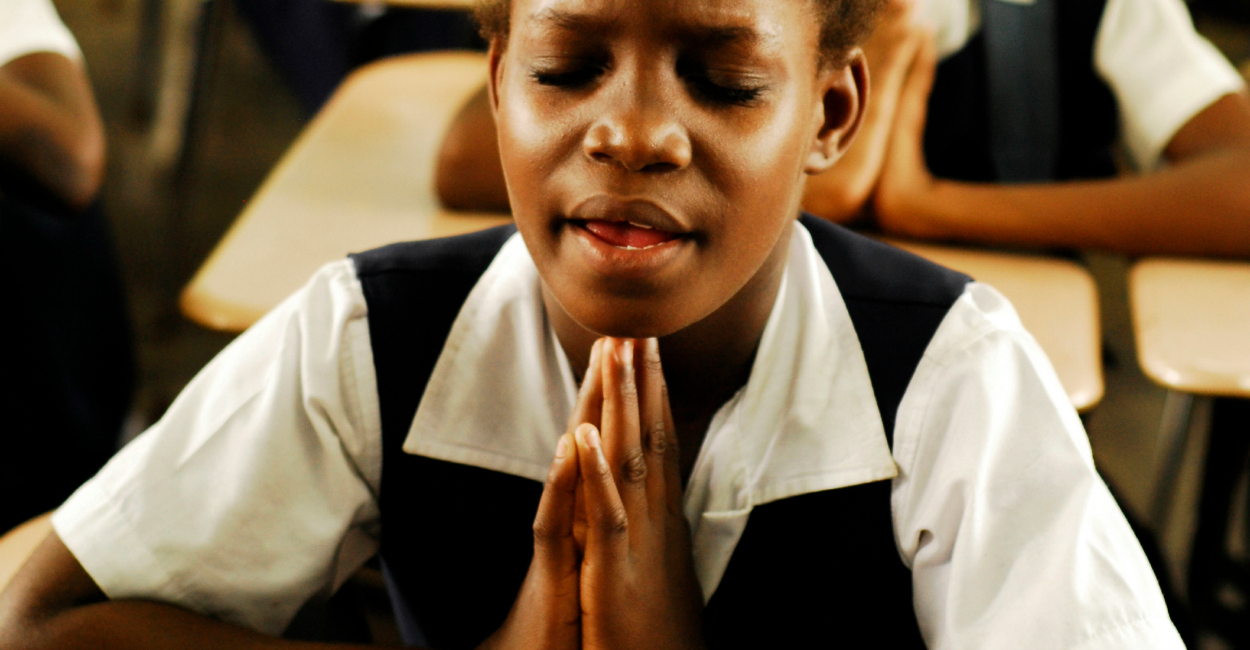Tuesday’s oral arguments at the Supreme Court were excellent. There were so many good points made about what marriage is and why redefining marriage would cause harms.
This litany of harms stands in stark contrast to the outrageous lower court rulings that had declared no rational basis to state marriage laws defining marriage as it always had been in America: a union of husband and wife.
Most importantly, it was clear that the nine Supreme Court justices do not have any greater insight on ideal marriage policy than do ordinary American citizens. And the Constitution itself is silent about it.
So the justices should uphold the authority of citizens and their elected representatives to make marriage policy in the states.
Here are some of the best portions of Tuesday’s arguments.
What Is Marriage?
Justice Anthony Kennedy pointed out that thinking marriage is the union of a man and a woman “has been with us for millennia. And it—it’s very difficult for the Court to say, oh, well, we—we know better.”
Chief Justice John Roberts noted that “Every definition that I looked up, prior to about a dozen years ago, defined marriage as unity between a man and a woman as husband and wife.” So he pointed out: “you’re not seeking to join the institution, you’re seeking to change what the institution is. The fundamental core of the institution is the opposite-sex relationship and you want to introduce into it a same-sex relationship.”
How much experience do we have with redefined marriage? Twice Justice Antonin Scalia pointed out that there wasn’t “any society, prior to the Netherlands in 2001, that permitted same-sex marriage.”
And Scalia ridiculed the idea that the plaintiffs were “asking us to decide it for this society when no other society until 2001 ever had it.”
Kennedy seemed reluctant to judicially redefine marriage as well. Redefining marriage to include same-sex relationships has, Kennedy pointed out, only been around for “10 years is—I don’t even know how to count the decimals when we talk about millennia.”
Even Justice Stephen Breyer got in on the act, noting that marriage understood as the union of a man and a woman “has been the law everywhere for thousands of years among people who were not discriminating even against gay people, and suddenly you want nine people outside the ballot box to require states that don’t want to do it to change … what marriage is.”
He concluded: “Why cannot those states at least wait and see whether in fact doing so in the other states is or is not harmful to marriage?”
Not Anti-Gay at All
Justice Samuel Alito pointed to a near universal historical consensus about what marriage is, and asked if the lawyer was seriously going to argue it resulted only because of anti-gay sentiment. Alito asked:
How do you account for the fact that, as far as I’m aware, until the end of the 20th century, there never was a nation or a culture that recognized marriage between two people of the same sex?
Now, can we infer from that that those nations and those cultures all thought that there was some rational, practical purpose for defining marriage in that way or is it your argument that they were all operating independently based solely on irrational stereotypes and prejudice?
Support for marriage as the union of a man and a woman can’t simply be the result of anti-gay animus, Alito pointed out, because “there have been cultures that did not frown on homosexuality. … Ancient Greece is an example. It was well accepted within certain bounds.” Alito pointed out that “people like Plato wrote in favor of that.”
And yet, ancient Greece and people like Plato never thought a same-sex relationship was a marriage. Alito concluded: “So their limiting marriage to couples of the opposite sex was not based on prejudice against gay people, was it?”
Twice Justice Antonin Scalia pointed out that there wasn’t “any society, prior to the Netherlands in 2001, that permitted same-sex marriage.”
Roberts highlighted another important clarification: What petitioners are arguing for in this case is not freedom from government, but government affirmation. Roberts explained that in a previous Supreme Court case, “the whole argument is the State cannot intrude on that personal relationship.”
Now people are suing saying “the State must sanction. It must approve that relationship. They’re two different questions.” Just so.
John Bursch, the lawyer who defended the marriage laws in Michigan, echoed this point. He noted that while “the government cannot interfere in private, intimate conduct,” the Court “cannot as a constitutional matter … force the State into these relationships by forcing them to recognize and give benefits to anyone.”
Bursch was also emphatic to point out that this was not about demeaning gays and lesbians:
The State of Michigan values the dignity and worth of every human being, no matter their orientation or how they choose to live their life. That’s not what this case is about.
Our point is that when you change something as fundamental as the marriage definition … the dictionary definition which has existed for millennia, and you apply that over generations, that those changes matter. And it’s not unreasonable.
So what are those consequences?
Redefining Marriage Has Consequences for Marriage
Bursch explained that “the marriage institution did not develop to deny dignity or to give second-class status to anyone. It developed to serve purposes that, by their nature, arise from biology.”
What are those purposes? It’s not consenting adults’ romance as such, but uniting mothers and fathers with each other and with their children. Bursch explained:
Imagine a world today where we had no marriage at all. Men and women would still be getting together and creating children, but they wouldn’t be attached to each other in any social institution.
Now, the marriage view on the other side here is that marriage is all about love and commitment. And as a society, we can agree that that’s important, but the State doesn’t have any interest in that.
If we’re trying to solve that social problem I just described, where there’s no marriage, we wouldn’t solve it by saying, well, let’s have people identify who they are emotionally committed to and recognize those relationships.
Yet redefining marriage to say it’s primarily about emotional commitment would have consequences. Bursch explained that “when you change the definition of marriage to delink the idea that we’re binding children with their biological mom and dad, that has consequences.”
The consequences of redefining marriage won’t happen overnight, but the law will have an impact. “We’re talking about something that’s going to change the meaning of the institution over generations,” Bursch explained.
He compared it to the impact that “no-fault divorce” had on marriage “where we tweaked what marriage means, and it had consequences over the long term that some people didn’t expect.”
Bursch asked the justices to consider two married couples with a 3-year-old child:
One grows up believing that marriage is about keeping that couple bound to that child forever. The other couple believes that that marriage is more about their emotional commitment to each other, and if that commitment fades, then they may not stay together.
A reasonable voter, which is what we’re talking about here, could believe that there would be a different outcome if those two marriages were influenced by those two different belief systems. Ideas matter.
Ideas do matter. And citizens should be able to make marriage policy themselves, not have unelected judges insert their own policy preferences while claiming the Constitution requires them.
After all, as Bursch explained, “if you’re changing the meaning of marriage from one where it’s based on that biological bond to one where it’s based on emotional commitment, then adults could think, rightly, that this relationship is more about adults and not about the kids.” And “over decades, when laws change, when societal views on marriage change, there are consequences to that.”
Bursch pointed out that the state of Michigan is “concerned about all the children, children of opposite-sex couples and children of same-sex couples.” But how to best craft marriage policy to best serve all children is a difficult question, and judges have no crystal ball to answer it—which is why in our constitutional system citizens and their elected representatives make marriage policy.
Once you say “equality” requires radical redefinitions of marriage by courts—not citizens—you never know what the end result will be.
“There are 72 million children in this country,” Bursch pointed out, and if “this Court ensconces in the Constitution a new definition of marriage and it reduces the rate that opposite-sex couples stay together, bound to their children, because of that different understanding, even a 1 percent change” would have dramatic impacts.
States should be free to take this into consideration as they craft their own policy.
Allowing Democracy to Work Out Marriage Policy Makes Better Policy and Civil Peace
But what happens if the Court doesn’t respect the authority of citizens to make marriage policy in the states?
Roberts noted that a court-imposed 50-state solution would not lead to civil peace, but to anger and resentment. If the Court unilaterally redefined marriage, “there will be no more debate.”
And this would cause problems: “Closing of debate can close minds, and it will have a consequence on how this new institution is accepted. People feel very differently about something if they have a chance to vote on it than if it’s imposed on them by the courts.”
Bursch echoed this concern:
When people have to act through the democratic process, it forces neighbors to sit down and civilly discuss an issue and try to persuade each other through reason, love and logic.
And we have already seen that happen in 11 states, and if you read some accounts, that could happen in many more very quickly.
When you enact social change of this magnitude through the federal courts, it’s cutting off that dialogue and it’s saying one group gets their definition and the other is maligned as being irrational or filled with animus.
And that’s not the way that our democratic process is supposed to work and there are long-term harms to our country and to that fundamental liberty interest to govern ourselves.
Nowhere are the consequences of redefining marriage clearer than with religious liberty. And yet the Obama administration’s Solicitor General Donald Verrilli admitted that religious schools that affirm marriage as the union of a man and a woman may lose their non-profit tax-exempt status if marriage is redefined.
Alito asked Verrilli whether a religious school that believed marriage was the union of husband and wife would lose their non-profit tax status. The solicitor general answered: “It’s certainly going to be an issue. I don’t deny that. I don’t deny that, Justice Alito. It is it is going to be an issue.”
Scalia also asked about the religious liberty concerns if the Supreme Court creates a constitutional right to same-sex marriage. When the lawyer replied that we hadn’t seen many religious liberty violations in the states that have democratically redefined marriage, Scalia pounced: that’s his point. Here’s how he explained it:
They are laws. They are not constitutional requirements. That was the whole point of my question. If you let the states do it, you can make an exception. … You can’t do that once it is a constitutional proscription.
Scalia repeated himself, almost verbatim, mere minutes later: “That’s my whole … point. If it’s a state law, you can make those exceptions. But if it’s a constitutional requirement, I don’t see how you can.”
If the Court Redefines Marriage, What’s the Limiting Principle?
It’s not only religious liberty that will be threatened, but so too will future redefinitions.
If you sue to say that “equality” requires redefining marriage in all fifty states to include same-sex couples, what else does “equality” require? If the fundamental right to marry is simply about consenting adult romance and care-giving, what limits could the state ever place on it?
Justice Alito asked about a foursome, “a group consisting of two men and two women apply for a marriage license. Would there be any ground for denying them a license?”
If you redefine marriage to say it’s just about consenting adult love and caregiving, why not include the foursome?
Alito pressed the point: “What would be the ground under the logic of the decision you would like us to hand down in this case? What would be the logic of denying them the same right?”
Pursuing this same line of thought further, Alito asked about other types of couples. How about siblings?
They’ve lived together for 25 years. Their financial relationship is the same as the same-sex couple. They share household expenses and household chores in the same way. They care for each other in the same way.
Is there any reason why the law should treat the two groups differently?
Good question. Once you say “equality” requires radical redefinitions of marriage by courts—not citizens—you never know what the end result will be.
Laboratories of Democracy: Wait and See
Rather than rush to a 50-state “solution” on marriage policy for the entire country, the Supreme Court should allow the laboratories of democracy the time and space to see how redefining marriage will impact society as a whole.
There is no need for the Court to “settle” the marriage issue like it tried (unsuccessfully) to settle the abortion issue.
Because the Supreme Court cut the democratic process short on abortion, there is no issue less settled in American public life than abortion. Our politics on abortion are so polarized because the Court didn’t allow the democratic process to work.
Why would the Court want to repeat that mistake? Why would the Court want to enflame the Culture War?
Justice Kennedy seemed aware of this potential consequence of the Court rushing to judgement. Kennedy pointed out that with such a short period of time in which same-sex parenting and same-sex marriage has existed, how can anyone know the true outcomes? How can anyone know which of the conflicting social science studies are most accurate?
This is why giving the states time to settle the question democratically is important. Kennedy explained:
Well, part of wait and see, I suppose, is to ascertain whether the social science, the new studies are accurate. But that it seems to me, then, that we should not consult at all the social science on this, because it’s too new. You think you say we don’t need to wait for changes.
Of course we need to wait and see what the consequences are of redefining marriage. And that’s why the Court shouldn’t attempt to settle this once and for all.
Allowing marriage policy to be worked out democratically will give citizens and their elected representatives the freedom to arrive at the best public policy for everyone.
If the Court tries to settle this itself, it’ll simply launch a culture war like it did in Roe.
Thankfully, the Constitution doesn’t require the redefinition of marriage—and hopefully the justices will say as much.






























